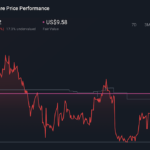
(Adds Amnesty, local hardline group comment)
By Ruma Paul and Devjyot Ghoshal
COX’S BAZAR, March 27 (Reuters) – Facebook said its services in Bangladesh were shut down on Saturday, as hundreds of hardline Islamists marched across the country, angered by the police killing of their supporters who had protested against a visit by Indian premier Narendra Modi.
The government of Prime Minister Sheikh Hasina did not comment if it had blocked Facebook and its messenger app, but it has previously used internet shutdowns as a tool to curb the spread of protests.
Four supporters of the Islamist group Hefazat-e-Islam were killed on Friday after police opened fire when protesters allegedly attacked a police station in the southeastern town of Chittagong.
They were demonstrating against Modi, whom the group accuses of alienating minority Muslims in India.
Dozens were also hurt on Friday in the capital Dhaka where police used rubber bullets and teargas in clashes with violent protesters.
“We’re aware that our services have been restricted in Bangladesh,” Facebook said in a statement. “We’re working to understand more and hope to have full access restored as soon as possible.”
Facebook also said it had serious concerns about the manner in which it was being restricted in Bangladesh at a time when effective communication was necessary to tackle the coronavirus pandemic.
On Saturday, hundreds of members of Hefazat-e-Islam and other Islamist groups marched on the streets of Chittagong and Dhaka protesting the deaths of their supporters.
“Police opened fire on our peaceful supporters,” the group’s organising secretary Azizul Haque told the rally in Chittagong. “We will not let the blood of our brothers go in vein.”
Hefazat-e-Islam, which translates into protection of Islam, has called for a nationwide strike on Sunday to protest the killings.
Non-profit Amnesty International also criticised the police action in Chittagong.
“The right to peaceful protest has come under concerted attack, particularly during the coronavirus pandemic, culminating in this type of bloody repression,” Sultan Mohammed Zakaria, Amnesty International’s South Asia Researcher, said in a statement.
Modi landed in Dhaka on Friday for a two-day visit, his first international trip since the outbreak of the coronavirus pandemic last year, to celebrate the 50th anniversary of the nation’s independence.
He will hold formal talks with Hasina on Saturday.
“We don’t want to see Modi in Dhaka,” Hefazat leader Sultan Mohiuddin said, addressing supporters in the capital city. “He must leave Bangladesh soon.” (Reporting by Ruma Paul in Cox’s Bazar, Devjyot Ghoshal in New Delhi; Writing by Sankalp Phartiyal; Editing by Michael Perry and Clelia Oziel)







